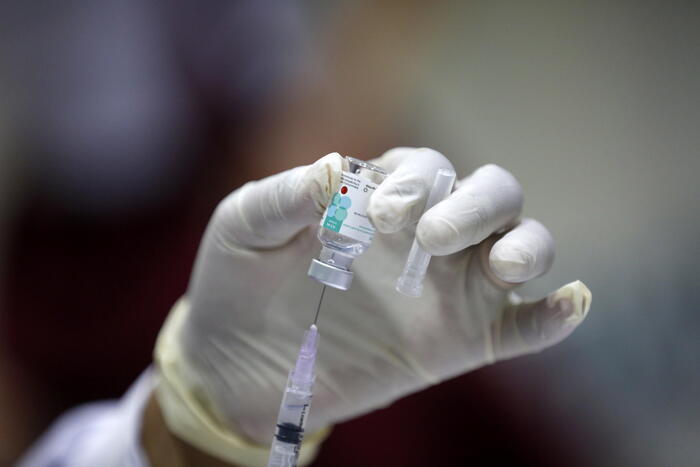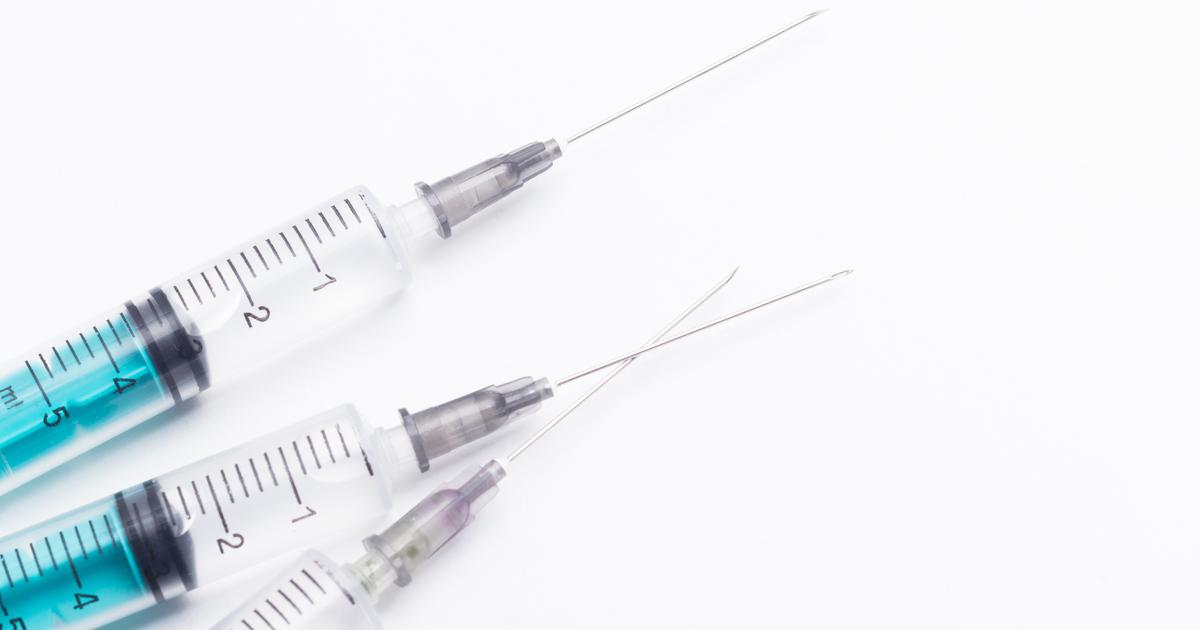B.1.1.7 also in Germany: The more contagious virus variant worries medical professionals worldwide.
Read here what virus mutations mean for vaccination protection.
On December 24, 2020, virus variant B.1.1.7 (also called VOC 202012/01 or N501Y-V1) was detected for the first time in a woman in Germany *.
The virus mutation had already appeared in the south-east of Great Britain in November 2020.
As the Ärzteblatt reported, several returnees have brought the virus mutant B.1.1.7 to Germany since December 2020.
In addition to the first case in Baden-Württemberg, authorities also reported cases in Saxony, Berlin and Bavaria.
The new virus variant is said to be around 70 percent more contagious than all other known Sars-CoV-2 forms.
Against this background, the question arises:
How effectively do the currently available corona vaccines protect against this and other new virus variants?
Two vaccines are approved in Germany: a preparation from the Mainz company Biontech with Pfizer and a vaccine from the US biotechnology company Moderna.
The Astrazeneca vaccine is also in the staring holes: The British-Swedish pharmaceutical company Astrazeneca and the University of Oxford had applied for approval of their preparation from the European Union.
On January 29, the European Medicines Agency (EMA) will decide whether the vaccine will be approved in the EU
.
Immunization through vaccinations is considered to be the most important step to contain the corona pandemic.
But the hope of “vaccination” also has potential for discussion.
Many citizens fear possible side effects.
Coronavirus mutations also give cause for concern as to whether the vaccination against Sars-CoV-2 actually has the desired effect
and can protect against Covid-19.
This is why vaccine manufacturers are currently checking whether their products are also effective against virus mutants such as the “British” VOC-202012/01 or the variant 501.V2 (reported for the first time in South Africa).
Biontech vaccine works against British and South African virus mutation
According to the Ärzteblatt, experts were optimistic: Since the vaccines BNT162b2 from Biontech / Pfizer and mRNA-1273 from Moderna would contain the entire spike gene, the risk of a lack of effect in the event of an infection with a virus mutant would be very low.
The US pharmaceutical company Pfizer and the University of Texas analyzed in a study whether the Biontech / Pfizer vaccine actually shows an effect against new virus variants.
The result:
The antibodies produced on the Biontech Covid-19 vaccine also neutralized SARS-CoV-2 variants with the key mutation N501Y in the spike protein
.
N501Y was detected in both virus mutations (from Great Britain and South Africa).
The test with antibodies in the blood of 20 people who had been vaccinated had further shown that the vaccine was up to 95 percent effective even with virus mutations.
However, the publication still has to be checked.
"The sera from 20 participants in the phase 3 study, which has already been published, neutralized the virus with the mutation to the same extent as the virus without the mutation," explain Biontech / Pfizer, as reported by Deutsche Apotheker Zeitung (DAZ).
Should the virus change in such a way that an adaptation of the vaccine becomes necessary, according to the DAZ companies believe that the flexibility of Biontech's proprietary mRNA technology platform enables adaptation.
Vaccination against corona: this is how mRNA vaccines work
SARS-CoV-2 uses a so-called spike protein to dock on the cells and thus penetrate the body cells.
The protein binds to a receptor called ACE2 on the surface of human cells, which means that the virus can fuse with the cell membrane and release its genetic material inside the cell.
Antibodies can recognize the virus based on the spike protein, bind to it and mark it as a target for immune cells
, as the Helmholtz Institute informs.
This is where the corona vaccination comes into play.
As the Pharmazeutische Zeitung reports, in mRNA corona vaccinations it is not the traditional way of inoculating the antigen (i.e. the pathogen or parts of it) that the immune system should react to, but rather the instructions for the spike protein.
As a result, the body produces these proteins, which in turn activates the immune system and makes antibodies against the protein.
In the event of a later corona infection, these antibodies can trigger a rapid immune response by marking the spike protein on the virus surface as "hostile".
(jg) * Merkur.de belongs to the Germany-wide Ippen-Digital editorial network
.
More sources: https://www.nejm.org/doi/full/10.1056/NEJMoa2034577?query=featured_home
Read more
: Moderna vaccination now also in Germany - but Biontech vaccine should have fewer side effects.
The life-saving prick: These risk groups should be vaccinated against the flu
The life-saving prick: These risk groups should be vaccinated against the flu









